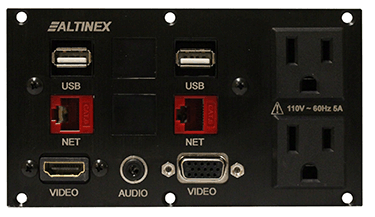Lamar University Invests in High-Speed Wireless

A daily selection of features, industry news, and analysis for AV/IT professionals. Sign up below.
You are now subscribed
Your newsletter sign-up was successful
Lamar University, a member of the Texas State University System, and one of the fastest growing universities in Texas, has selected Ruckus Smart Wi-Fi products and technology for a massive campus-wide Wi-Fi infrastructure upgrade.
The project is bringing reliable, high-speed wireless connectivity to thousands of students, faculty, staff, and visitors, according to a recent press release. Lamar’s Smart Wi-Fi infrastructure is based on the new 802.11ac Wi-Fi standard and will provide pervasive coverage and gigabit-class performance to nearly 15,000 users across some 64 buildings and outdoor green spaces within Lamar’s 270-acre campus.
The new 802.11ac Wi-Fi network is enabling Lamar University to securely connect tens of thousands of mobile and wireless devices being used on campus, while allowing university faculty to incorporate a wide range of education technologies and enhanced collaboration into their academic programs.
“It has become very clear that our faculty and students want to infuse the use of technology into the educational learning experience and better Wi-Fi was at the top of the list,” said Pricilla Parsons, Vice President of Information Technology at Lamar University. “Our users needed faster and more stable access to coursework, e-books, video and other digital curriculum tools that enrich the educational process, and our existing wireless network simply couldn’t support the new levels of technology being put in place.”
It is widely understood that the quality of the student computing experience has become an important decision factor for students in selecting a college. In the 2014 Campus Computing Survey, the largest continuing study of the role of computing and information technology in American higher education, senior IT officers identified "implementing and supporting mobile computing" as the top IT priority, while only 17% rate mobile services at their institution as "excellent.”
“Given today’s higher education environment, having a carrier-class Wi-Fi infrastructure is an indispensable tool for delivering a 21st century education and is also critical for recruiting a new generation of tech savvy students that now expect a world-class online experience,” said Parsons. “From an IT perspective, our focus has always been to deploy the right technology, for the right purpose, at the right price. The innovations Ruckus has made to transform Wi-Fi from a technology of convenience into a reliable utility is helping us achieve this vision.”
According to Lamar’s IT staff, the ability to deliver reliable and robust Wi-Fi connectivity across the campus has been challenging, given the diverse make up of buildings on campus. That diversity includes everything from laboratories and large high-capacity auditoriums, theaters and classrooms, to soundproofed music halls and older historic cinder block and concrete structures.
A daily selection of features, industry news, and analysis for tech managers. Sign up below.
“Lamar has a mixture of almost every environment you can imagine, so getting Wi-Fi to work and work well on such a large scale has been a daunting task,” said Patrick Stewart, Director of IT Computing Infrastructure at Lamar University. “The challenge we have now is to deliver the Wi-Fi density, connectivity and coverage required to adequately accommodate the multiplicity of smart mobile devices and online applications that students are using, virtually everywhere, on campus.”
Enter Pervasive Performance Across Campus with Smarter Wi-Fi
Lamar has seen the number of wireless users and devices on the network more than double over the last year. Its legacy network has struggled to support the higher densities and deliver the reliable connectivity and pervasive performance required by a growing population of sophisticated users now armed with multiple Wi-Fi devices.
“Our students’ personal devices are ubiquitous across campus, and if we aren’t able to participate in our students’ normal day-to-day lives with the technology they bring to bear, then we are going to be excluded from some very important engagement opportunities with them,” Parsons said.
Consequently, Lamar is replacing its legacy, campus-wide network with indoor and outdoor Ruckus ZoneFlex™ Smart Wi-Fi 802.11ac access points (APs) across its entire campus. The APs are uniformly and centrally managed through redundant Ruckus ZoneDirector™ 5000 controllers within Lamar’s data center. In addition, to better understand Wi-Fi usage and historical trends, Lamar has also deployed the Ruckus SmartCell™ Insight (SCI) platform to collect, analyze, parse, present, and store Wi-Fi data such as user traffic volumes, throughput, estimates of clients, access point and client traffic, and session information for years.
Lamar is also making use of Ruckus ZoneFlex 7731 long-range, 5 GHz Smart Wi-Fi point-to-point and point-to-multipoint bridges to deliver broadband bandwidth to buildings and strategic locations where running fiber was either not feasible and/or cost-prohibitive.
Lamar’s new Smart Wi-Fi infrastructure is supporting a myriad of applications such as its Blackboard learning management system, wireless access to data projectors, guest access, and IP-based video security cameras in parking lots, as well as innovative in-class applications that increase student engagement.
Looking forward, Lamar sees more growth in the number and sophistication of mobile devices used on its new Ruckus Smart Wi-Fi infrastructure and is now well prepared to handle these new developments.
The staff of AV Technology serves the community of decision-makers comprising AV/IT technology managers and directors, instructional technologists, and anyone making or influencing AV/IT technology decisions within their respective facilities and institutions.
